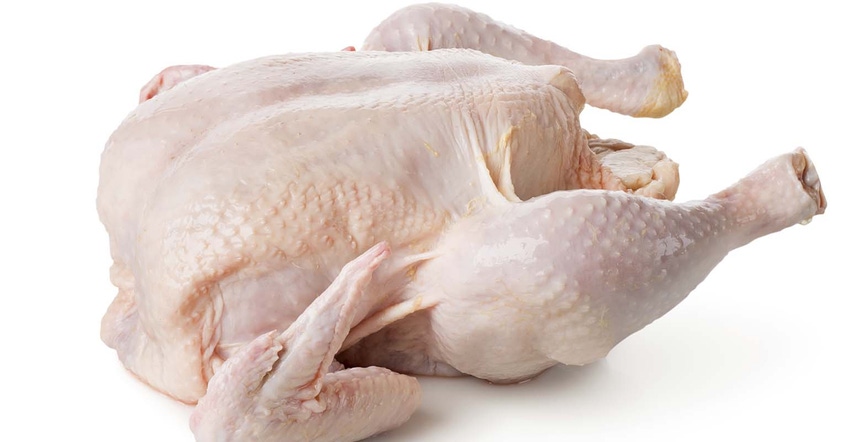
by Shruti Date Singh
Accusations of collusion that have dogged the American chicken industry in recent months took a new turn after Tyson Foods Inc., the country’s largest producer, said the U.S. Securities and Exchange Commission is investigating the allegations and sent it a subpoena.
The company said Monday in a filing that based upon the limited information it has, Tyson believes the investigation is related to the allegations contained in antitrust litigation involving broiler chickens. The Springdale, Arkansas-based company and its largest competitors have been named as defendants in a series of lawsuits in recent months that claim the industry colluded starting in 2008 to drive prices higher, allegations denied by Tyson and the other producers.
Tyson said in the filing it’s cooperating with the investigation, which is at an early stage. Chief Executive Officer Tom Hayes, speaking on a conference call with reporters, declined to comment further except to say the company wants to defend itself in court.
Shares of Tyson fell 3.5% to close at $63.13 in New York while rival producers Sanderson Farms Inc. and Pilgrim’s Pride Corp. also declined. Poultry producers’ shares have fallen due to the scrutiny of industry pricing practices and the SEC’s subpoena, Zain Akbari, a Chicago-based analyst for Morningstar Investment Services LLC, said in a report.
The charges in the recent lawsuits “are difficult to prove” but due to their gravity, “I suspect that there is indeed a valuation overhang on Tyson’s equity,” Ken Shea, a Bloomberg Intelligence analyst, said in an e-mail.
Pricing Practices
Over several decades, the U.S. chicken industry has transformed itself from being comprised mostly of family owned farms into a heavily consolidated sector controlled by several multibillion-dollar companies. Per-capita chicken consumption in the U.S. has more than doubled in 40 years. Consumers spent about $90 billion on chicken products last year.
As those companies’ market share and power has grown, they have drawn scrutiny for their production practices, such as their use of contract farming to raise birds for slaughter.
There have been some changes to the chicken industry amid the recent legal complaints. The Georgia Department of Agriculture, which gathered and disseminated the benchmark Georgia Dock prices that are the focus of some of those complaints, discontinued its widely used pricing index in December, citing the changes in the industry. Starting this month, the department began collecting data for a new index, although a lack of contributions has delayed the publication of the new measure.
Hayes said on a conference call with analysts that issues surrounding the Georgia Dock index a “tempest in a teapot” and said the company hasn’t changed its pricing practices.
Despite the chicken controversy, Tyson had record profit in its fiscal first quarter. Net income rose to $1.59 a share for the three months through Dec. 31 from $1.15 a year earlier, beating the $1.27 average of 12 estimates compiled by Bloomberg.
"We capitalized on favorable market conditions in our beef and pork segments and the cash generated is providing fuel for growth in our value-added chicken and prepared foods segments," Hayes said on a conference call.
Earnings excluding one-time items will be $4.90 to $5.05 a share in the 12 months through September, it said in a separate statement. That compares with a December forecast of profit at $4.70 to $4.85.
The higher guidance is “primarily the result of this quarter’s far-stronger-than-expected margin performance,” David Palmer, a New York-based analyst for RBC Capital Markets who has a sector perform rating on the shares, said in a report on Monday. The increase "suggests some degree of over-earning this quarter relative to the remaining three quarters.”
Hayes said the company’s goal is for long-term earnings per share growth to be in high single digits as it invests back into its businesses. Tyson has in the past targeted growth above 10%, and in fiscal 2016, its adjusted earnings rose 39%.
To contact the reporter on this story: Shruti Date Singh in Chicago at mailto:[email protected]
To contact the editors responsible for this story: Simon Casey at mailto:[email protected]
Robin Saponar
© 2017 Bloomberg L.P
About the Author(s)
You May Also Like




